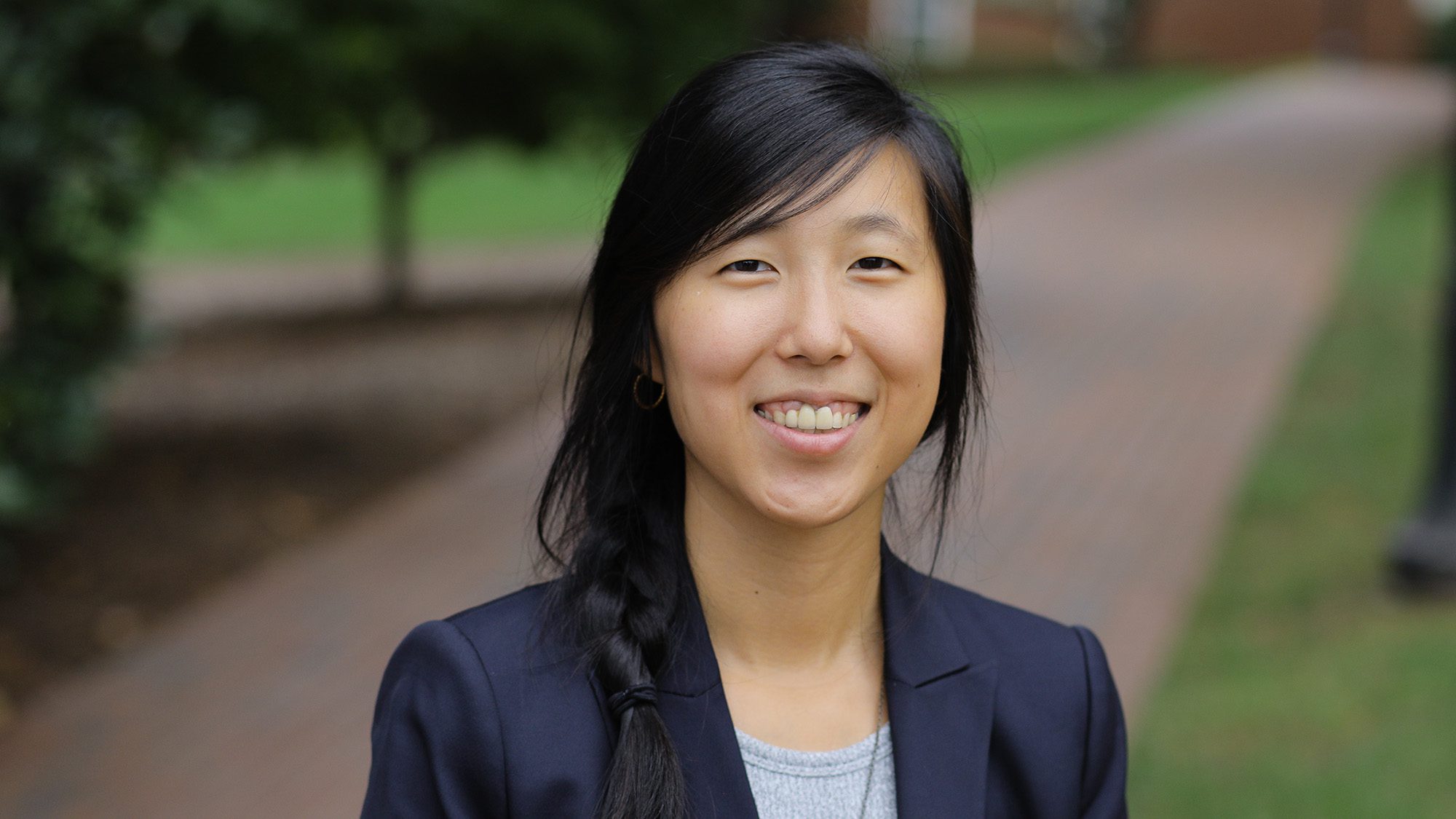Family and culture connect classics professor to Korea

AAPI Heritage Month at Furman
Read more stories >>
Eunice Kim, an assistant professor of classics, does not exaggerate when she says she comes from “a very academic family.” Her mother, Saeja Kim, is the chair of mathematics at the University of Massachusetts, Dartmouth. Her father, Kyung-Suk Kim, is a professor of engineering at Brown University in Providence, Rhode Island. She and her two older sisters all earned Ph.Ds at prestigious schools. The Kims’ family history may help explain why, she said.
“My parents grew up in the post-Korean War reconstruction of South Korea,” said Kim, who, like her sisters, was born in the United States after her parents emigrated from Seoul in the 1970s. “It was a very difficult time economically. My grandparents emphasized the importance of education for success, and those same values passed on to future generations.”
Cultural ties
While raising their family in Rhode Island, the Kims stressed connections to their home country. “My entire life, until I went to college, I had to go to Korean school,” said Kim. “Every Friday, I would go with other young Korean Americans in Rhode Island.”
Kim quickly picked up reading and writing in Korean, “but I was always resistant to speaking and practicing the language, and I regret that now,” she said. “Growing up, when it came to family topics or chores, we spoke Korean. I know all the vocabulary for phrases like ‘Do the dishes.’ But when it came to world topics or politics, we switched to English. So, I don’t have the muscle memory to really pronounce particular Korean vowels and letters.”
The Kims stayed connected to Korean culture in other ways, renting VHS tapes of Korean dramas from their local Asian supermarket and listening to tapes by the 1970s psychedelic folk trio Sanulrim.
Kim’s choice of academic field may have seemed curious to some, but it made perfect sense to her.
“Students will occasionally ask, ‘Why not study literature that’s more particular to your background?’” she said. “I just always liked doing something completely different from what I knew, and you can’t get more different than Latin. I like the idea of recovering this aspect of antiquity that we don’t have access to other than through literature and archeology.”
‘A growing population’
After college in New England and graduate work in the Pacific Northwest, moving to the Southeast to join Furman’s faculty in 2018 was an adjustment for Kim.
“Before, I had always felt an easy means to connect with the local Korean community and the food and the traditions,” she said. “I would always see other Asians or Asian Americans, and in Greenville, I feel like it’s frequently just me. But it is a growing population.”
In fact, one of the biggest Korean American communities in the United States is a two-hour drive away: Duluth, Georgia, nicknamed “The Seoul of the South.” About once a month, Kim tries to make the rounds of the city’s Korean barbecue restaurants (a particular favorite is a grilled pork belly dish called samgyeopsal) and grocery stores.
Furman students are eager to embrace Asian culture, noted Kim, in groups like the Furman University Anime Club (for which Kim is the faculty advisor) and the Furman K-pop Club (with which Kim shares a fondness for Blackpink).
For Kim, Asian American and Pacific Islander (AAPI) Heritage Month is a chance to reflect on her own Korean American identity together with the many other identities that make up the AAPI community.
“It is a joy and honor to learn about, celebrate and promote our past experiences,” she said. “It’s also a month where I finally have time to watch a K-drama and catch up on all the latest Korean slang.”